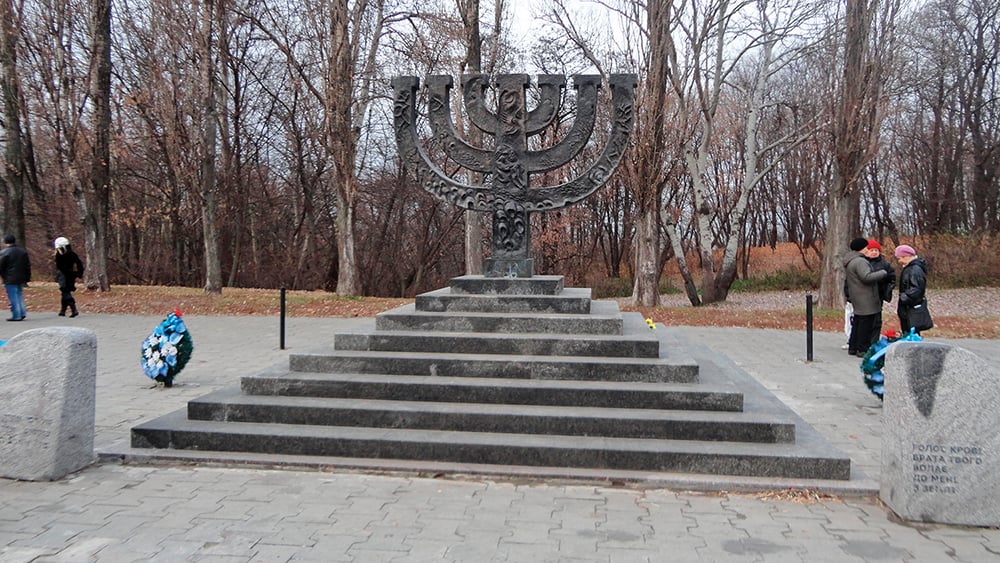Screenings will be held Jan. 27 (Metro Campus) and Jan. 28 (Florham Campus).

(Courtesy of Fairleigh Dickinson University) Fairleigh Dickinson University (FDU) will hold public showings of Leonid Gorovets’ Holocaust film “Ladies’ Tailor,” on January 27 at 7 p.m. on the FDU Metropolitan Campus in the Library Auditorium and on January 28 at 7 p.m. on the FDU Florham Campus in the Orangerie. The film is in Russian with English subtitles and will be shown without charge both to members of the FDU community and the public. The 90-minute film will be introduced by FDU provost and professor of Russian, Benjamin Rifkin, who will also facilitate the discussion after the screening.
International Holocaust Remembrance Day occurs annually on the anniversary of the liberation of Auschwitz on January 27, 1945 by Soviet troops. This year is the 80th anniversary of the liberation.
The 1990 drama “Ladies’ Tailor” focuses on one Jewish family on the eve of the Nazi massacre of over 30,000 Jews at Babi Yar in Kyiv on September 29-30, 1941.

Rifkin noted: “When we think about the Holocaust, we often think primarily of Auschwitz and other concentration camps, precisely because there were some survivors, but less frequently about extermination camps or other methods the Nazis used to murder Europe’s Jews. As Timothy Snyder has argued, Auschwitz has become a symbol of the Holocaust, but that symbol excludes the experience of millions of victims. Indeed, the vast majority of the victims of the Holocaust were the Jews of Poland and the Soviet Union, victims murdered by bullet.
“The ‘Holocaust by bullet’—Jews killed by Einsatzgruppen, special detachments of Hitler’s SS—claimed the lives of approximately 1 million Jews of Poland and the USSR in the period from June to December 1941 (a number equivalent to the total of Jews murdered at Auschwitz throughout that camp’s existence),” Rifkin added. “The Holocaust by bullet took the lives of another 700,000 Jews in 1942 before the German army began to retreat.”
Rifkin continued: “The Soviet Union did not recognize the Jewishness of the victims of the massacre at Babi Yar, one of the largest of the Holocaust by bullet, for decades. Indeed, Yevgeny Yevetushenko’s 1961 poem about Babi Yar begins with the phrase: ‘There is no monument at Babi Yar.’ A monument was ultimately established at the site—and was bombed by the Russian military in March 2022, soon after the Russians launched their full-scale invasion of Ukraine.”
Gorovets’ film, the last he made before immigrating from the USSR to Israel, not only tells the story of one Soviet Jewish family and the story of the last hours before the massacre at Babi Yar, but also the story of the disappearance of traditional Jewish life in Eastern Europe.
If you need special accommodation to participate in this event, please contact FDU Disabilities Support Services at (201) 692-2078 for the screening on the Metropolitan Campus or (973) 443-8079 for the screening on the Florham Campus.
The screening of this film is made possible by agreement with the National Center for Jewish Film at Brandeis University.
For any other information about the film screening, please contact Eleanor Friedl at [email protected] or (973) 443-8516.









